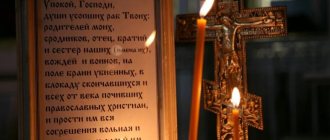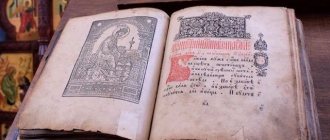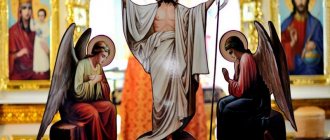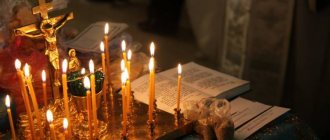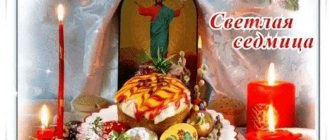When to visit the cemetery before Easter
The church commemorates the dead on every Saturday during the 2nd, 3rd and 4th weeks of Lent (it lasts until Easter). If we talk about when to visit the cemetery before Easter in 2022, we can remember the memorial dates that are established by the church calendar.
In 2022 these are the following dates:
- February 26 - First Ecumenical Parents' Saturday ( Meat and Meat Parents' Saturday, 8 days before the start of Lent 2022). They commemorate all deceased Orthodox Christians - both parents and relatives, acquaintances, and friends.
- March 19, March 26 and April 2 are Parental Saturdays of Lent in 2022.
That is, it is optimal to get to the cemetery on these days, since special prayers are performed in churches for all the deceased. However, it is allowed to come to the cemetery on other days (except Easter itself).
Where did the tradition of going to the cemetery on Easter Sunday come from?
Previously, cemeteries were located in close proximity to churches and chapels. People going to worship walked long distances to attend the festive service.
Finding themselves on the way to the cemetery, some of them began to break their fast. Meeting with relatives and friends became an occasion to remember those who were no longer with them.
In days when religion and faith were not welcomed, the cemetery was almost the only place where relatives, under the pretext of visiting the graves of relatives and friends, greeted each other with the greeting prescribed by church canons, said Christ, and treated each other to Easter cakes and painted eggs.
Today there are no persecutions or prosecutions against believers for their religion, and therefore there is no reason to go to the cemetery on Easter.
The Church calls for abandoning forcedly established traditions and returning to the original canons indicating when after Easter they go to the cemetery in 2022 and in any other years.
When do you visit a cemetery after Easter?
People often ask when exactly, on what day should they go to the cemetery, before or after Easter? Traditionally, the main day of remembrance of the dead is considered to be Radonitsa, i.e. parent's day (second Tuesday after Easter Sunday). This year, such a day will come on May 3, 2022.
It is interesting that despite the rather mournful situation and sad thoughts, the very word “Radonitsa” is consonant with “joy”. Such a coincidence is not a coincidence, and it is certainly not related to a play on words.
If you immerse yourself for a minute in the very atmosphere of the day and the events preceding it, you can imagine that departed ancestors and dear people always rejoice when their relatives visit them. After all, it is not for nothing that traveling and going to graves, arranging them, cleaning the cemetery, remembering the deceased in prayer and alms is considered a normal, long-established tradition.
The memory of ancestors is sacred in every nation, so there is a whole culture of remembrance - monuments are created, evenings are held where loved ones gather. And often in honor of the famous deceased, events are even organized that bear their name. It is thanks to this that the departed person seems to come to life, and his presence is almost felt next to us.
As for church ideas, the spirit of the deceased is immortal, and only the body dies. And of course, we remember only the soul. And you can help her through prayer and fasting. The holy fathers, for example, John Chrysostom, wrote about this:
A luxurious burial is not love for the deceased, but vanity. If you want to sympathize with the deceased, I will show you another method of burial and teach you to lay out vestments, decorations worthy of him and glorifying him: this is alms.
Saint John Chrysostom
News from Kashar region
Easter is approaching - the most important holiday of the year for Orthodox Christians.
The Church, taking into account the psychology of people, separates days of celebration and days of sadness. The joyful rejoicing that the Church communicates to believers at Easter is separated from the mood of sadness that accompanies the remembrance of the dead. Therefore, on Easter Day you are not supposed to go to the cemetery and perform funeral services.
If someone dies (and death on Easter is traditionally considered a sign of God’s mercy), then the funeral service is performed according to the Easter rite, which includes many Easter chants.
To visit the cemetery, the Church appoints a special day - Radonitsa (from the word joy - after all, the Easter holiday continues), and this holiday falls on the Tuesday after Easter week.
On this day, a funeral service is served and believers visit the cemetery to pray for the departed, so that the Easter joy will be passed on to them.
IT IS IMPORTANT! People began to visit the cemetery on Easter only during Soviet times, when churches were closed. People who felt the need to gather and share joy could not go to churches, which were closed, and went to the cemetery on Easter instead of going a week later. The cemetery seemed to replace a visit to the temple. And now, when churches are open, this Soviet-era tradition cannot be justified; it is necessary to restore the church tradition: to be in church on Easter Day and celebrate the joyful holiday, and to go to the cemetery on Radonitsa.
We must remember that the tradition of leaving food and Easter eggs on graves is paganism, which was revived in the Soviet Union when the state persecuted the right-wing faith. When faith is persecuted, severe superstitions arise. The souls of our departed loved ones need prayer. From a church point of view, it is unacceptable from a church point of view a ritual when vodka and black bread are placed on the grave, and next to it is a photograph of the deceased: this, in modern language, is a remake, since, for example, photography appeared a little over a hundred years ago: this means that this is a tradition new.
As for commemorating the dead with alcohol: any kind of drunkenness is unacceptable. The Holy Scriptures allow the use of wine: “Wine makes glad the heart of man” (Psalm 103:15), but warns against excess: “Do not get drunk with wine, for there is fornication in it” (Eph. 5:18). You can drink, but you can't get drunk. The deceased need our fervent prayer, our pure heart and sober mind, alms given for them, but not vodka.
How the dead are remembered during Easter Many people visit the cemetery on Easter, where the graves of their loved ones are located.
Unfortunately, in some families there is a blasphemous custom of accompanying these visits to the graves of their relatives with wild drunken revelry. But even those who do not celebrate pagan drunken funeral feasts at the graves of their loved ones, which are so offensive to every Christian feeling, often do not know when on Easter days it is possible and necessary to remember the dead. The first commemoration of the dead takes place on the second week, after St. Thomas Sunday, on Tuesday.
The basis for this commemoration is, on the one hand, the remembrance of the descent of Jesus Christ into hell, connected with the Resurrection of St. Thomas, and, on the other, the permission of the Church Charter to carry out the usual commemoration of the dead, starting with St. Thomas Monday. According to this permission, believers come to the graves of their loved ones with the joyful news of the Resurrection of Christ, hence the day of remembrance itself is called Radonitsa.
How to properly remember the departed Prayer for the departed is the greatest and most important thing we can do for those who have passed on to another world.
By and large, the deceased does not need either a coffin or a monument - all this is a tribute to traditions, albeit pious ones. But the eternally living soul of the deceased experiences a great need for our constant prayer, because it itself cannot do good deeds with which it would be able to appease God. That is why prayer at home for loved ones, prayer in the cemetery at the grave of the deceased is the duty of every Orthodox Christian. But commemoration in the Church provides special help to the deceased.
Before visiting the cemetery, you should come to the church at the beginning of the service, submit a note with the names of your deceased relatives for commemoration at the altar (it is best if this is a commemoration at the proskomedia, when a piece is taken out of a special prosphora for the deceased, and then as a sign of washing away his sins will be lowered into the Chalice with the Holy Gifts). After the Liturgy, a memorial service must be celebrated. The prayer will be more effective if the person commemorating this day himself partakes of the Body and Blood of Christ. It is very useful to donate to the church, give alms to the poor with a request to pray for the departed.
How to behave at a cemetery When you arrive at a cemetery, you need to light a candle and perform a litia (this word literally means intense prayer). To perform the rite of litia in commemoration of the dead, a priest must be invited. Then clean up the grave or simply remain silent and remember the deceased. There is no need to eat or drink in a cemetery; it is especially unacceptable to pour vodka into a grave mound - this insults the memory of the dead. The custom of leaving a glass of vodka and a piece of bread at the grave “for the deceased” is a relic of paganism and should not be observed in Orthodox families. There is no need to leave food on the grave; it is better to give it to the beggar or the hungry.
When can you go to the cemetery: *on the day of the funeral; *on the 3rd, 9th and 40th day after death; *every year on the day of a person’s death; *on memorial days - Monday and Tuesday of the week following Easter; *Meat Saturday, the week preceding Lent; *2nd, 3rd and 4th Saturdays of Lent; *Trinity Saturday - the day before the feast of the Holy Trinity; *Dmitrov Saturday is the first Saturday in November.
When you can’t go to a cemetery: *Orthodoxy does not encourage visiting the graves of relatives on Christian holidays such as Easter, Annunciation and Christmas; *Trinity is also not celebrated in the cemetery - people go to church on Trinity; *it is believed that there is no need to go to the churchyard after sunset; *women are not advised to visit the place of the dead during pregnancy or menstruation. But this is a personal choice of every woman.
Some sources report that it would be wrong to go to his tomb on the birthday of the deceased. You can simply remember him with a kind word, among the family and loved ones of the deceased.
Upon arrival at the grave, a positive action would be to light a candle and remember the deceased. You should not drink or eat near the gravestone. Host a memorial dinner at home.
Do not step on or jump over graves. There is no need to touch other people's graves or restore order there, unless the relatives of the person buried there have asked you to do so.
In the case when you dropped something on the dead ground, it is better not to pick up this thing. If the fallen object is very important to you, when you pick it up, put something in its place (candies, cookies, flowers).
When leaving the cemetery, do not turn around, much less do not return. When you come home, wash your hands thoroughly (or better yet, do this at the cemetery), be sure to wash off the cemetery soil from your shoes, and wash the tools you used to clean the grave.
Based on materials from the news agency “Orthodoxy and Peace”
When to visit a cemetery after Easter: the position of the church
The official point of view of the Orthodox Church is consistent with the opinion described above. Indeed, when it is Bright Week (i.e. the week after Easter), you should not go to the graves.
There is no sin in the visit itself, but it is better for a person to protect his emotions from unnecessary shocks. This is especially important for older people who may have lost children. And also for those who have suffered a loss recently.
In such difficult moments, you can simply not restrain yourself, and then frustration, tears, and quite understandable grief will flood your still fragile heart. At the same time, it is intuitively clear that Easter itself and the week after it are bright days, when believers celebrate the victory of life over death thanks to the infinitely precious sacrifice of Christ.
Easter, without a doubt, is the main church holiday. It is the basis of the faith of billions of people on our planet. The resurrection of the Savior is the best proof of the existence of life after death. It is also a gift to all living people who can ask for forgiveness for their sins at any time. And they will certainly be heard.
Therefore, it is preferable to go to the cemetery either before the holiday or after it, to Radonitsa. But in extreme cases, visiting on Holy Week is also permissible (but on Easter, of course, it is completely undesirable).
Just keep in mind that the clergy will not be able to serve a memorial service until Mother’s Day: this is prohibited by church regulations.
Why does visiting graves contradict the essence of the holiday?
Believers consider Easter the most significant and joyful holiday of the year. Everything is aimed at expressing joy and jubilation over the great event and unprecedented miracle that took place two thousand years ago.
The priest’s answer to the question why there is no need to go to graves, even to clean up and leave Easter cakes and eggs, is quite clear:
- they go to remember the dead on specially designated parental Saturdays or days;
- Even on parent’s day, you should not leave food on graves, much less consume it there, accompanied by libations;
- it is believed that on Easter the souls of the departed also rejoice and look at the earth, so their graves should not be disturbed;
- Throughout Bright Week, visiting cemeteries and graveyards is prohibited, since the souls of the deceased are in heaven, and the joyful holiday of Easter is a holiday of the living.
There is only one correct answer to the question: when after Easter do they go to the cemetery to visit their parents - on Radonitsa, the 9th day after the Holy Holiday.
Why do people go to the cemetery on Easter?
It is interesting that there is a fairly widespread opinion among people that one should definitely visit a grave on Easter. For example, come immediately after the service, leave some dye and Easter cakes, etc.
This idea is not entirely correct: after all, Easter Sunday is a bright day, which is literally filled with the energy of life, joy, and movement forward.
It is clear that the cemetery sets a completely different wave. It’s interesting: even if you just walk past unfamiliar graves in an area where none of your relatives are buried, even the calmest person will feel a little nervous. And he certainly won’t want to rejoice, dance, sing and have fun.
Therefore, on the bright day of Easter, it is better to go home, to friends, family, and neighbors. As they say, everything has its time.
Dos and don'ts when visiting
Anyone planning to visit a cemetery should take certain points into account. Of course, everyone chooses a time to visit based on their workload and capabilities, but still, it would be preferable to have a time of day such as morning, or at least lunch. It is believed that the souls of the deceased await their loved ones until noon. Cleaning up the cemetery on Easter is prohibited.
Note! Visiting a cemetery in the evening and at night is extremely undesirable for ethical reasons. In addition, after dark it can be completely unsafe.
It is better to choose clothes of neutral or dark colors, legs must be covered, closed shoes are preferred. It is advisable to cover your head with a scarf. Women should avoid makeup or keep it discreet.
How to behave when visiting a church (monastery) or graveyard
Often Orthodox believers strive not only to go to the cemetery, but also to remember their dead in various churches and visit monasteries. A believer can go to a monastery or its compound and make a memorial for loved ones in church at any time. You can order one mass for the deceased or as many as you want - commemoration by a clergyman during the liturgy, forty-day - commemoration for forty days. There are longer dates - six months, a year, and in some monasteries they also accept eternal remembrance.
When to remember the dead
In Orthodoxy, there are services for special (pure) commemoration of deceased loved ones. Such days are Parental Saturdays, three of them are specifically intended for commemoration during the days of Lent. The day before, on Friday, a service is held, where the priest reads the 17th kathisma (funeral) from the Psalter, which requires a special canon. In the morning, a liturgy is served, at which the deceased are remembered, notes of repose are written (only baptized Orthodox Christians, not suicides), and sweets, bread, butter, and other products are brought to church in memory of deceased relatives. After the liturgy, they serve a memorial service, where there is an obligatory prayer for the repose of all infants, soldiers and all Orthodox Christians. And then they go to the cemetery and clean it up after the winter.
What to do if you didn’t have time to clean up the cemetery before Holy Week?
All church rules must be followed, because they were established for a reason. By violating them, a person brings trouble both to himself and to his loved ones and relatives. But, there are times when something serious happened, and there was simply no time to clean up before Easter and Holy Week. Exceptions can be made, but if the rules were broken for good purposes.
If someone did not have time to go to the cemetery before Holy Week, and the grave and the area around it were not cleaned or well-groomed, then this can still be done. But not on Easter, but at least three days later.
Church opinion
The Church is not a coercive body that highly values freedom of religion and expression. Each person chooses for himself what to do on Easter.
But it is worth considering what the church says on this matter. If there is an irresistible desire to share the joy of the Resurrection with the deceased, no one will condemn the person, but it is advisable to visit the temple on this day. And the priests’ answers confirm that going to the cemetery on Easter is not a sin, but rather an incorrect fulfillment or incorrect interpretation of Orthodox canons.

